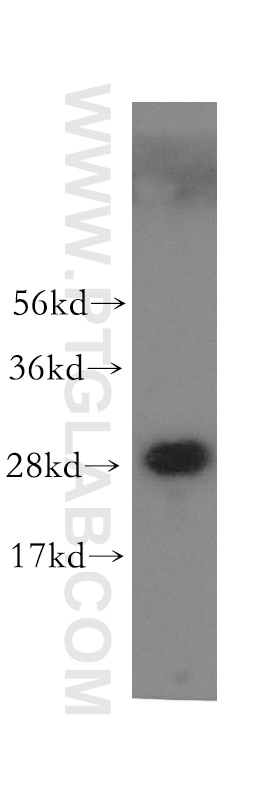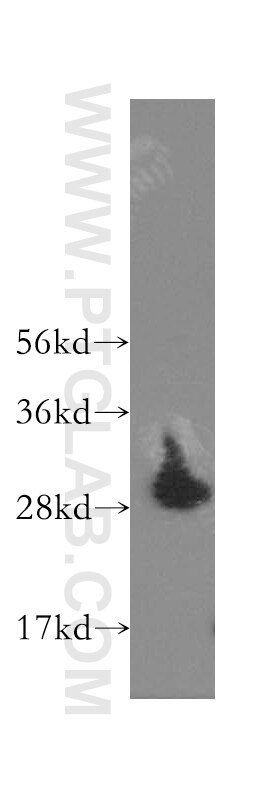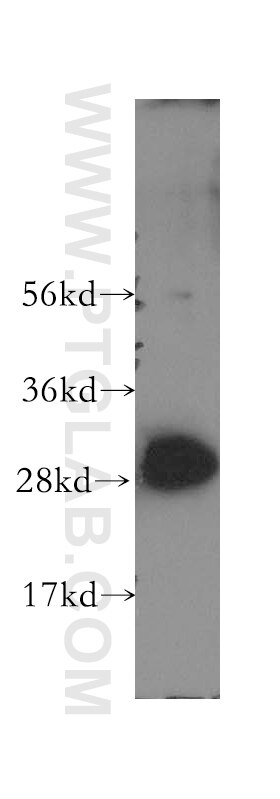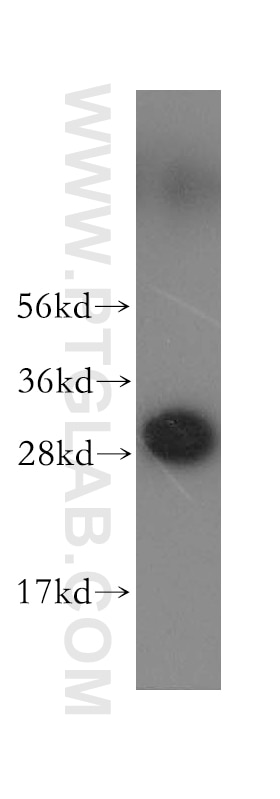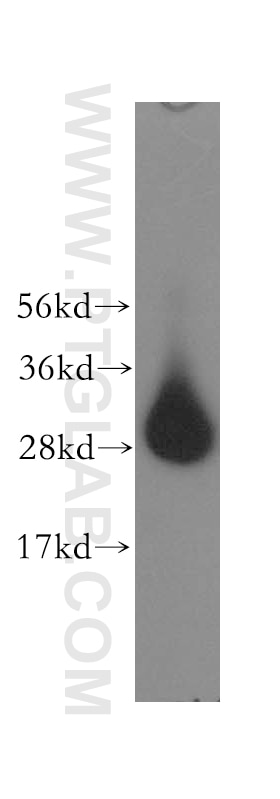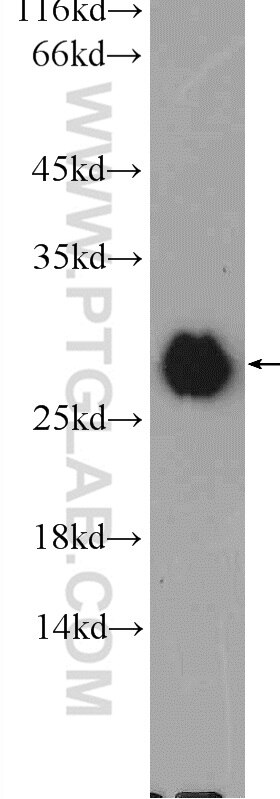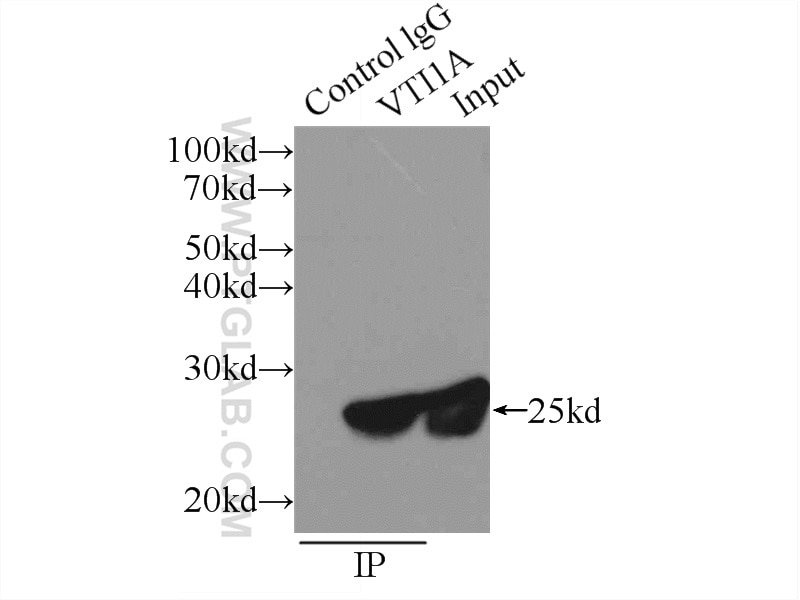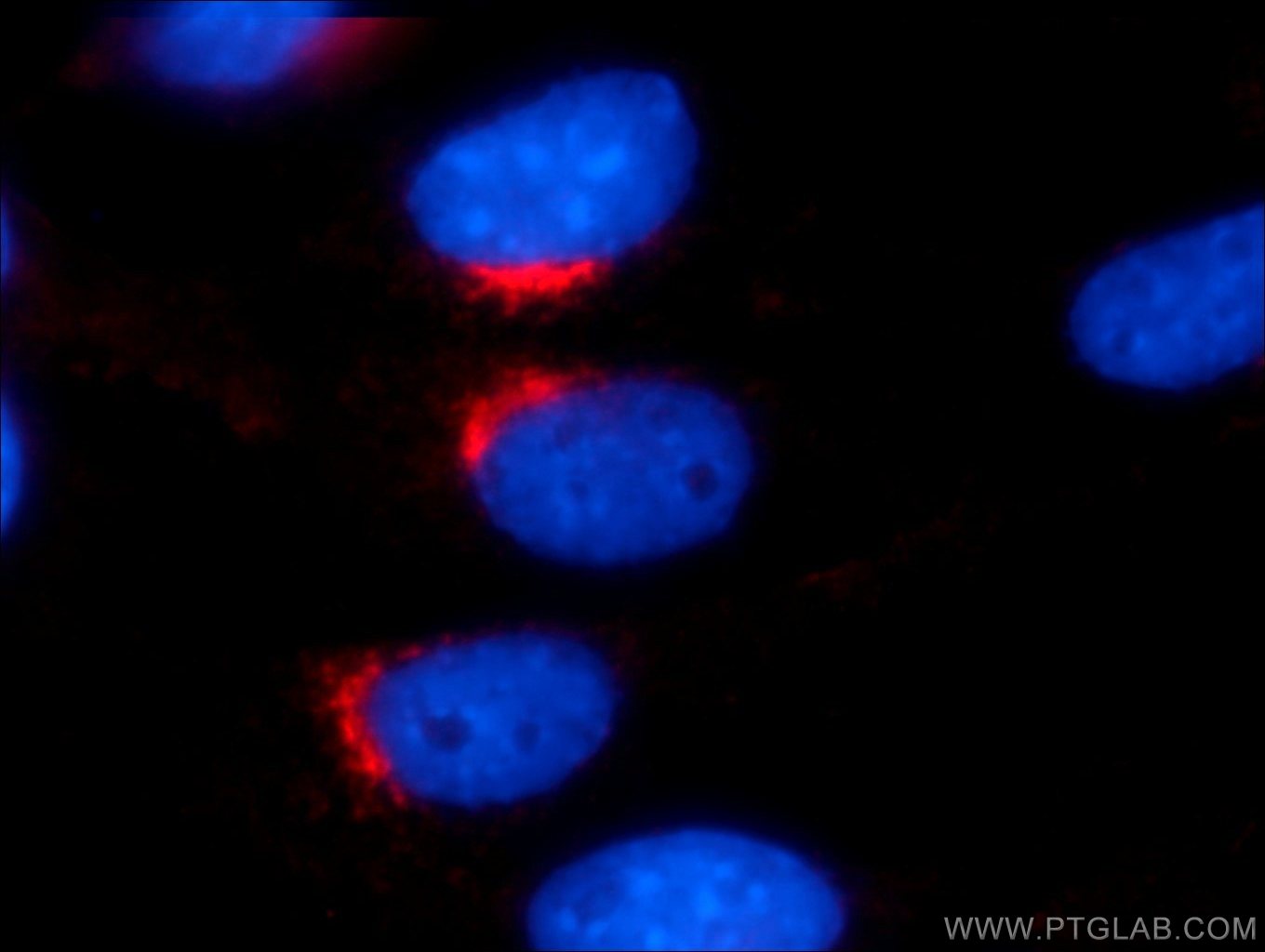Tested Applications
| Positive WB detected in | human brain tissue, human heart tissue, human kidney tissue, human lung tissue, MCF-7 cells, mouse brain tissue |
| Positive IP detected in | MCF-7 cells |
| Positive IF/ICC detected in | NIH/3T3 cells |
Recommended dilution
| Application | Dilution |
|---|---|
| Western Blot (WB) | WB : 1:1000-1:4000 |
| Immunoprecipitation (IP) | IP : 0.5-4.0 ug for 1.0-3.0 mg of total protein lysate |
| Immunofluorescence (IF)/ICC | IF/ICC : 1:10-1:100 |
| It is recommended that this reagent should be titrated in each testing system to obtain optimal results. | |
| Sample-dependent, Check data in validation data gallery. | |
Published Applications
| WB | See 9 publications below |
| IF | See 4 publications below |
Product Information
12354-1-AP targets VTI1A in WB, IF/ICC, IP, ELISA applications and shows reactivity with human, mouse, rat samples.
| Tested Reactivity | human, mouse, rat |
| Cited Reactivity | human, mouse |
| Host / Isotype | Rabbit / IgG |
| Class | Polyclonal |
| Type | Antibody |
| Immunogen |
CatNo: Ag3018 Product name: Recombinant human VTI1A protein Source: e coli.-derived, PGEX-4T Tag: GST Domain: 1-203 aa of BC017052 Sequence: MSSDFEGYEQDFAVLTAEITSKIARVPRLPPDEKKQMVANVEKQLEEAKELLEQMDLEVREIPPQSRGMYSNRMRSYKQEMGKLETDFKRSRIAYSDEVRNELLGDDGNSSENQRAHLLDNTERLERSSRRLEAGYQIAVETEQIGQEMLENLSHDREKIQRARERLRETDANLGKSSRILTGMLRRGCSVKKQCNLSLAPKA Predict reactive species |
| Full Name | vesicle transport through interaction with t-SNAREs homolog 1A (yeast) |
| Calculated Molecular Weight | 217 aa, 25 kDa |
| Observed Molecular Weight | 25-29 kDa |
| GenBank Accession Number | BC017052 |
| Gene Symbol | VTI1A |
| Gene ID (NCBI) | 143187 |
| RRID | AB_2216150 |
| Conjugate | Unconjugated |
| Form | Liquid |
| Purification Method | Antigen affinity purification |
| UNIPROT ID | Q96AJ9 |
| Storage Buffer | PBS with 0.02% sodium azide and 50% glycerol, pH 7.3. |
| Storage Conditions | Store at -20°C. Stable for one year after shipment. Aliquoting is unnecessary for -20oC storage. 20ul sizes contain 0.1% BSA. |
Background Information
Fusion between membranes is mediated by specific SNARE (soluble N-ethylmeleimide-sensitive factor attachment protein receptor) complexes. Two human SNARE proteins, VTI1A and VTI1B, are homologous to the yeast Q-SNARE Vtilp which is part of several SNARE complexes in different transport steps (PMID: 12067063). VTI1A is involved in transport between the endosome and the trans-Golgi network. The SNARE complex of STX10, STX16, VTI1A, and VAMP3 is required for MPR (mannose 6-phosphate receptors) transport from endosomes to the Golgi after delivering lysosomal enzymes to the endocytic pathway (PMID: 18195106). Transport from early/recycling endosomes to the TGN is mediated by the SNARE complex of STX6, STX16, VTI1A and VAMP4 (PMID: 11839770; 21807881).
Protocols
| Product Specific Protocols | |
|---|---|
| IF protocol for VTI1A antibody 12354-1-AP | Download protocol |
| IP protocol for VTI1A antibody 12354-1-AP | Download protocol |
| WB protocol for VTI1A antibody 12354-1-AP | Download protocol |
| Standard Protocols | |
|---|---|
| Click here to view our Standard Protocols |
Publications
| Species | Application | Title |
|---|---|---|
J Cell Biol The COG complex interacts directly with Syntaxin 6 and positively regulates endosome-to-TGN retrograde transport. | ||
Oncogene Syntaxin-6 mediated autophagy confers lenvatinib resistance in hepatocellular carcinoma | ||
J Cell Sci The COG complex interacts with multiple Golgi SNAREs and enhances fusogenic assembly of SNARE complexes. | ||
Oncotarget Downregulation of vimentin expression increased drug resistance in ovarian cancer cells. | ||
Traffic Deficiency of the Cog8 subunit in normal and CDG-derived cells impairs the assembly of the COG and Golgi SNARE complexes. |

